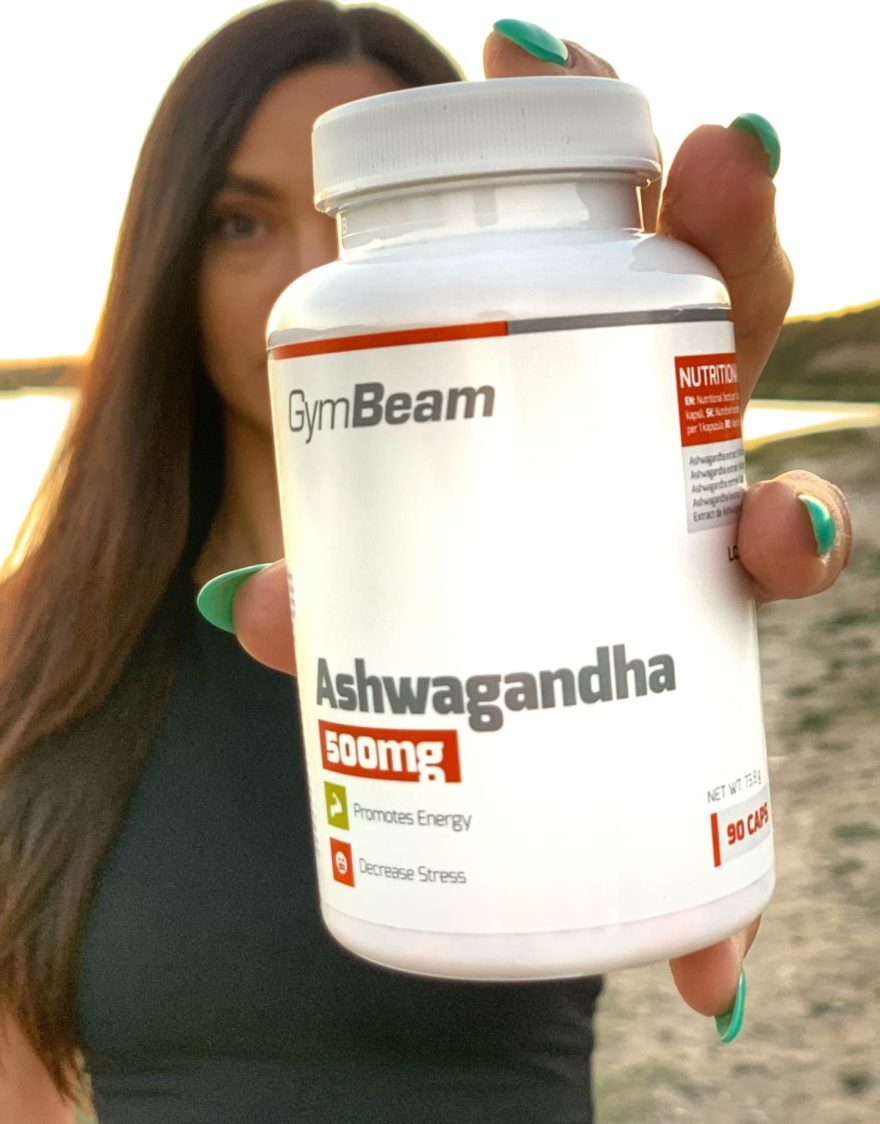Table of Contents
Probably everyone has experienced the feeling of a tight stomach before an important test or when looking into an extremely busy diary. No wonder, since stress is a common part of our lives and it will probably never happen that we would be able to live completely without it. However, it is necessary to distinguish what kind of stress we regularly encounter. When it comes to the short-term stress that a person feels when trying to pass an exam or during an interview in front of their future employer, this condition can even help to focus and perform better. However, this doesn’t apply to long-term chronic stress, which damages mental and physical health and can even be life-threatening. [1]
In today’s article, we will therefore explain what exactly happens in our body when we are stressed, how stress manifests itself, what consequences it can have and what can be done to reduce negative stress as much as possible.
What happens to our body when we are stressed?
Every stress response, whether it is positive or negative, begins with a so-called stressor or trigger. This can be, for example, a sad memory, a specific life event or pain. The phenomenon, which then takes place in the body, begins in the behavioural inhibition system, certain parts of which are responsible for the reaction and behaviour. In cooperation with the brain’s memory bank, it will then evaluate the degree of danger of this situation. If our body begins to consider the situation threatening, the alarm phase will be initiated. Gradually, noradrenaline activates the sympathetic part of the autonomic nervous system, which affects adrenal medulla. It then begins to release adrenaline and noradrenaline into the bloodstream. Most body cells contain receptors on which both adrenaline and noradrenaline act, causing known symptoms of stress to manifest themselves. [2]
Other symptoms of long-term stress include:
- increase in blood pressure
- increase in heart rate
- increase in breathing
- sweating
- goosebumps
- dilation of pupils

In a stressful situation, cortisol (a stress hormone) and glucocorticoids are also produced. Their short-term effect is beneficial, but long-term increase can lead to damage to the body, such as loss of muscle mass, impaired glucose metabolism, weakened immune system, loss of neurons, faster brain cell death or tumour growth. [2]
Other symptoms of long-term stress include: [3]
- irritability
- fatigue
- headache
- impaired concentration
- sleep problems
- digestive problems
- changes in appetite
- loss of libido
- nervousness
- frequent occurrence of the disease
- reduced self-confidence
So we know that long-term stress is definitely not something we want to have in our lives. But it’s very easy to say: “Get rid of stress.” But how do you do that? In today’s article, we will try to give you some tips that could help you at least minimize stress to a tolerable level that won’t have a negative impact on the body. Let’s take a look at them.
1. Do sports
According to the World Health Organization recommendation, we should devote 150 minutes to a medium-intensity activity or 75 minutes to high-intensity activities each week. Exercise undoubtedly has an impact not only on our physical health, but also on the psyche. This is evident, for example, from the results of a study in which researchers focused on 682 recreational athletes. They found that people, who followed general exercise recommendations, felt less anxiety and stress in their lives, and enjoyed improved overall quality of life. [4] [5]
If you exercise regularly, you are certainly familiar with the feeling of euphoria after exercise, when endorphins, happiness hormones, are released in the body, and as a result you are in a good mood, the problems suddenly seem to be much more bearable, and you may even forget about things that stress you out. Therefore, try to do any sports activity you enjoy several times a week. Does yoga help you calm down? So practice yoga. Do you need to work hard and sweat even harder to relieve stress? So try fast running or HIIT. And if lifting heavy weights makes you feel good, then do strength training. Any type of sports is great to relieve stress. Everyone is different and everyone also knows best what activities make them feel good. And that’s exactly what you should do to reduce stress levels.

Keep in mind that the saying “the more, the better” might not be the case here. Paradoxically, if you overexercise, your stress levels might increase. So keep in mind that you should perform all activities in moderation and let your body rest and regenerate. For example, even a simple walk in nature can help with reducing stress, so there is no need to sweat blood every day. If you exercise regularly, the quality of your sleep will also improve, which also affects the level of stress hormones.
For more tips on staying active, see 5 Tips to Stay Active, Motivated and Exercise Even at Home.
2. Write down your feelings

If a person entrusts things that stress them to someone close, they will be relieved. But how to deal with problems that stress you out but you don’t want anyone to know about them? The solution may be to record feelings in a diary. The writing process itself can have calming effects. In order to be able to put together meaningful sentences, you need to concentrate, ideally in a quiet room.
You can also turn this recording of feelings into a regular ritual by creating a pleasant atmosphere in the room in the morning or in the evening and spending some time writing. You don’t have to write just what bothers you.
Also, you should record the days when something nice happened to you, write down the things you are grateful for, what makes you happy, what you look forward to, and so on. Then, when you have a bad day which is literally loaded with stress, try to stop for a moment and go through the older pages in your diary. Remember that even though you have felt bad many times, you have always handled it. At the same time, you will also realize that there are many things that make you happy and for which you can be grateful, which can thus help you reduce your stress levels.
This effect is evidenced by the results of a study that confirmed that grateful people have stronger mental health, lower stress levels and better quality of life. [7]
3. Listen to music

Music accompanies us in almost all life situations, whether we are sad or in a good mood, there is always a song that we can play. But you may not know that there is music to help relieve stress. But don’t worry, this is not an esoteric method, we also have scientifically based findings for you. Studies have found that relaxing music can help lower blood pressure, heart rate and stress hormone levels, leading to overall relaxation of the body.
Classical, Celtic, Native American or Indian music can have a calming effect. If the mentioned genres aren’t your cup of tea, your favourite playlist can fulfill a similar purpose. It’s up to you whether you play slower songs that calm you down, or wild rhythms that make you go crazy. Both methods will help to reduce stress. [8]
4. Be with your loved ones

It’s always better to fight stress if you aren’t alone. The results of the study show that when women spend time with friends and family, their body releases oxytocin (an anti-stress hormone). On the contrary, the psyche of both women and men is negatively affected by the lack of social interactions. There are many ways to spend time with family and loved ones. You can play something together, prepare a delicious meal or just talk about your feelings and the past days. [9] [10]
The intimate moments you spend with your partner also have a positive effect on reducing stress. The results of the study clearly show that kissing, cuddling, hugging and sex promote oxytocin release and help lower cortisol levels. If you are stressed and avoid intimate moments, you should reconsider your approach. Maybe that’s exactly what can help you reduce stress. [11] [12] [13]
You don’t have to despair in case you’re single. According to scientists, interaction with pets can also lead to the release of the anti-stress hormone oxytocin. You will see that cuddling with your pet will please both you and them. [14]
5. Plan and be productive
This point refers, in particular, to chronic procrastinators, i.e. people who are able to postpone all their duties indefinitely. The reason can be, for example, laziness or the feeling that a person has so many responsibilities and doesn’t know where to start, which leads to procrastinating and eventually doing nothing. To avoid this problem, it is necessary to clearly determine what activities you need to do and when they must be completed at the latest. Once you have written this list, divide the individual tasks into smaller steps, which aren’t as difficult to complete as the entire task. Then schedule these partial tasks into individual days so that you can be sure that you can handle everything without any problems and you won’t have to chase deadlines at the last minute. Thanks to this system, you don’t have to be stressed that you can’t catch up, so eventually the individual tasks will be easier for you to complete. You’ll realize that seeing all the tasks you’ve had for a given day ticked off is priceless. [15]
6. Try mindfulness

Mindfulness is a technique that helps reduce fatigue and stress. Simply put, one tries to be aware of the present moment, thanks to which one learns to work better with one’s thoughts and not be controlled by negative situations.
How to start with this method?
- Start by finding a position (sitting, lying down) in which you will feel comfortable and relaxed.
- Focus only on your breath, try not to think about anything else.
- If you can’t concentrate on breathing, try counting the seconds of inhales and exhales, this should distract you enough from other thoughts.
- If you still have other thoughts, try to push them into the background and return to the focus on breathing.
This way you can keep yourself focused on the present moment during all activities. Whatever you do, always try to focus on just one particular thing – for example, running, eating or washing dishes. Perceive this activity with all your senses. This way, you will learn to work with your thoughts, manage and reduce stress.
7. Engage in activities that make you happy

Everyone who has stopped doing their favorite activities because “they’re busy and don’t have time” should think about this point. Even if you have a busy schedule and can’t keep up, you should be able to plan a few hours each week when you’ll engage in activities that entertain and fulfill you. It doesn’t matter if you enjoy reading, drawing, playing sports, watching movies, or even cleaning. Doing things that you enjoy can easily reduce stress, making you much more productive in the end.
However, the above activities are not the only ways you can do to reduce your stress levels. For example, sauna, cold baths, sleep, lower monitoring of negative news or various breathing exercises can also help. It’s up to you which activities you want to focus on.
8. Try supplements

Adaptogens
We refer to adaptogens as substances that help better manage physical and mental stress, anxiety, fatigue and stress. The first dietary supplement we would like to introduce is Ashwagandha (Indian ginseng).
Its anti-stress effects have been confirmed in many studies. A good example is research where significant differences were noted between two groups of people with chronic stress, one taking Ashwagandha and the other placebo. The effect of Ashwagandha on stress reduction was also confirmed by other research, where participants felt significantly less stress, and in addition, had better sleep quality.
The recommended daily intake of Ashwagandha is about 300-500 mg of root extract. You can learn more about it in the article Ashwagandha – an Inconspicuous Herb that Hides Miraculous Effects. [16] [17] [27]
Another adaptogen, Rhodiola Rosea (golden root), has similar effects. According to the results of studies, the extract from this plant can be effective in reducing the symptoms of stress, preventing chronic stress and its complications. Similar results were found by another research team, which observed a significant reduction in anxiety, stress, anger, confusion, depression, and even a significant improvement in mood, after only 14 days. The optimal dose of Rhodiola is 50 mg per day. [18] [19] [28]

B vitamins
According to the results of studies, supplementation with B vitamins can have an effect on increasing cognitive performance and reducing work stress, which ultimately brings a reduction in long-term stress. According to a systematic review study from 2019, which included 16 studies with a total of 2015 participants, vitamin B can help reduce the feeling of personal stress and depression caused by stressful situations. Every person who feels too much pressure at university or at work should consider taking B vitamins. A dose of high-quality multivitamin should be sufficient to cover the recommended daily intake. [20]
L-theanine
L-theanine is the amino acid most commonly found in tea leaves. So it’s no coincidence that many people drink tea when they want to calm down and reduce stress. The results of the studies show that l-theanine has the ability to reduce stress and calm the body without causing sedation. Further research, in which participants regularly drank a drink containing 200 mg of l-theanine, demonstrated a significant reduction in the levels of the stress hormone cortisol, which was released in the body due to the stressful multitasking. The effective dose of l-theanine is about 100-200 mg. [21] [22] [29]
You might be interested in these products:
Glycine
Another amino acid that can positively affect stress levels is glycine. Our body needs it for the production of proteins. The results of the study show that taking glycine can increase the body’s resistance to stress by calming the brain and lowering body temperature, which helps to improve sleep. For a positive effect on sleep, you should take 3-5 grams of glycine with food before bedtime. [23] [24] [30]

Magnesium
In addition to the substances mentioned above, magnesium can also have an effect on reducing stress levels. According to a systematic review that included 18 studies, magnesium may have the effect of reducing mild to moderate anxiety and stress. How strong effects we can expect from magnesium is the subject of further research. However, we already know for sure that it contributes, for example, to a reduction in fatigue, electrolyte balance, normal metabolism, proper functioning of the nervous system, muscles and normal protein synthesis.
It is certainly not harmful to focus on its sufficient intake since magnesium deficiency is very common. The daily dose of magnesium should be between 200-400 mg. The magnesium supplement should preferably be in the form of a chelate, which is well absorbed by the body. [25] [26]
What should you remember?
As you have learned today, stress will never disappear from our lives. Perhaps it can be even beneficial since it can promote a short-term increase in performance. However, you should avoid or at least minimize long-term stress, as it can negatively affect our mental and physical health.
However, if you focus on being active, perceiving your emotions, doing things that you enjoy, spending time with your loved ones and learning to control your thoughts with mindfulness technique, you will see that you’ll reduce the level of stress in your life and you will start to feel better in all aspects. Sufficient intake of adaptogens, B vitamins, l-theanine, glycine or magnesium can also help you with this issue.
Do you have any guaranteed ways to relieve you of stress? Share them with us in the comments. You can also help others deal with this enemy.
[1] MUDr. Večeřová-Procházková A. - Psychoneuroimunologie, Acta psychiatrica postgradualia bohemica
[2] MUDr. Večeřová – Procházková – https://www.internimedicina.cz/pdfs/int/2008/04/09.pdf
[3] What are the health effects of chronic stress? – https://www.medicalnewstoday.com/articles/323324#chronic-stress
[4] Physical activity and adults – https://www.who.int/news-room/fact-sheets/detail/physical-activity
[5] Siefken a kol - How does sport affect mental health? An investigation into the relationship of leisure-time physical activity with depression and anxiety – https://www.researchgate.net/publication/331867128_How_does_sport_affect_mental_health_An_investigation_into_the_relationship_of_leisure-time_physical_activity_with_depression_and_anxiety
[6] Angeli - The overtraining syndrome in athletes: A stress-related disorder – https://link.springer.com/article/10.1007/BF03347487
[7] Valikhani - The relationship between dispositional gratitude and quality of life: The mediating role of perceived stress and mental health – https://www.sciencedirect.com/science/article/abs/pii/S0191886918306494?via%3Dihub
[8] Jiang - The mechanism of music for reducing psychological stress: Music preference as a mediator – https://doi.org/10.1016/j.aip.2016.02.002
[9] Taylor a kol - Biobehavioral responses to stress in females: tend-and-befriend, not fight-or-flight – https://pubmed.ncbi.nlm.nih.gov/10941275/
[10] Cadzow a kol. - The association between perceived social support and health among patients at a free urban clinic – https://pubmed.ncbi.nlm.nih.gov/19331256/
[11] Cohen - Does hugging provide stress-buffering social support? A study of susceptibility to upper respiratory infection and illness – https://www.ncbi.nlm.nih.gov/pmc/articles/PMC4323947/
[12] Ditzen - Intranasal oxytocin increases positive communication and reduces cortisol levels during couple conflict – https://pubmed.ncbi.nlm.nih.gov/19027101/
[13] Ditzen - Sex-specific effects of intranasal oxytocin on autonomic nervous system and emotional responses to couple conflict – https://pubmed.ncbi.nlm.nih.gov/22842905/
[14] Beetz - Psychosocial and Psychophysiological Effects of Human-Animal Interactions: The Possible Role of Oxytocin – https://www.ncbi.nlm.nih.gov/pmc/articles/PMC3408111/
[15] Sirois - Chapter 4 - Procrastination, Stress, and Chronic Health Conditions: A Temporal Perspective – https://doi.org/10.1016/B978-0-12-802862-9.00004-9
[16] Salve a kol - Adaptogenic and Anxiolytic Effects of Ashwagandha Root Extract in Healthy Adults: A Double-blind, Randomized, Placebo-controlled Clinical Study – https://pubmed.ncbi.nlm.nih.gov/32021735/
[17] Chandrasekhar a kol - A prospective, randomized double-blind, placebo-controlled study of safety and efficacy of a high-concentration full-spectrum extract of ashwagandha root in reducing stress and anxiety in adults – https://pubmed.ncbi.nlm.nih.gov/23439798/
[18] Anghelescu a kol - Stress management and the role of Rhodiola rosea: a review – https://www.tandfonline.com/doi/full/10.1080/13651501.2017.1417442
[19] Cropley a kol - https://pubmed.ncbi.nlm.nih.gov/26502953/ – https://pubmed.ncbi.nlm.nih.gov/26502953/
[20] Stough a kol - Reducing occupational stress with a B-vitamin focussed intervention: a randomized clinical trial: study protocol – https://www.ncbi.nlm.nih.gov/pmc/articles/PMC4290459/#CR23
[21] Nobre - L-theanine, a natural constituent in tea, and its effect on mental state – https://pubmed.ncbi.nlm.nih.gov/18296328/
[22] White a kol - Anti-Stress, Behavioural and Magnetoencephalography Effects of an L-Theanine-Based Nutrient Drink: A Randomised, Double-Blind, Placebo-Controlled, Crossover Trial – https://pubmed.ncbi.nlm.nih.gov/26797633/
[23] Bannai - New therapeutic strategy for amino acid medicine: glycine improves the quality of sleep – https://pubmed.ncbi.nlm.nih.gov/22293292/
[24] Kawai - The sleep-promoting and hypothermic effects of glycine are mediated by NMDA receptors in the suprachiasmatic nucleus – https://pubmed.ncbi.nlm.nih.gov/25533534/
[25] Boyle - The Effects of Magnesium Supplementation on Subjective Anxiety and Stress—A Systematic Review – https://www.ncbi.nlm.nih.gov/pmc/articles/PMC5452159/
[26] Nariadenie Komisie (EÚ) č. 432/2012 – https://www.uvzsr.sk/docs/info/hv/nariadenie_432_2012.pdf
[27] Ashwagandha – https://examine.com/supplements/ashwagandha/
[28] Rhodiola Rosea – https://examine.com/supplements/rhodiola-rosea/
[29] Theanine – https://examine.com/supplements/theanine/
[30] Glycin – https://examine.com/supplements/glycine/


Add a comment